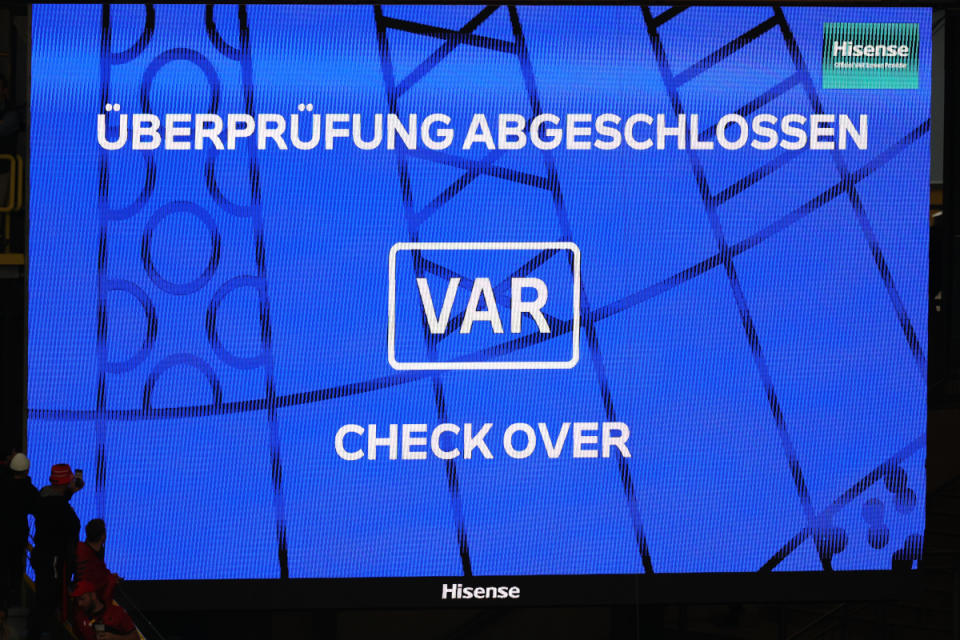Rocchi explains ‘step on foot’ penalties and VAR controversy

President of the Italian Referees’ Association Gianluca Rocchi explains the ‘step on foot’ controversy, but notes the Premier League is an outlier when it comes to VAR interpretation.
The former referee sat down with Sky Sport Italia this evening to discuss the situation so far this season, where rules and interpretation of those guidelines are constantly being tweaked.
Serie A and Ligue 1 were the first major European leagues to introduce VAR, so Italian football has been at the forefront of technological advances.
“VAR starts from the idea that any intervention must be made only if the error is a serious one,” said Rocchi.
“We in Italy are not losing our way, because our interpretation is pretty much in line with all the other leagues, apart from the Premier League. When there is a major error, there are two people in the VAR booth who see it one way and it’s entirely possible once the game is over, they leave and see everyone outside thinks about it in the opposite fashion.
“Our intention is to make the rules as clear as possible, but it is still a subjective sport, so a foul for us might not be a foul for others.”
The Premier League is also behind Serie A because it has still not introduced the Semi-Automatic Offside system, which significantly speeds up the decision-making process.
Serie A at forefront of VAR technology

There was a great deal of controversy in Serie A Week 7 and the growing concern is over the so-called ‘step on foot’ penalties, awarded when two players go for the same ball and one gets there a fraction of a second first.
“Whoever gets there first is right and ‘wins’ the ball,” insisted Rocchi, using the Fiorentina-Milan penalty for Dodo and Theo Hernandez coming together as an example.
“Dodo has a right to play the ball first. The guys in the VAR have to evaluate if there is a foul or just contact. I did tell the officials to be wary of exaggerated contact and they must also be aware of the dynamics of a foul. For example, Gudmundsson-Guendouzi was a foul with imprudent behaviour.”
The ‘step on foot’ is particularly galling for many in Italy because it has not been clamped down on quite so much in the Premier League or in European games.
In Italy, it is automatically a foul and a yellow card, or a penalty if inside the box.
“This step on foot rule was created because people realised it was an increasing type of challenge. It has to be challenging for the ball and not accidental. Look, the way the referee and a commentator sees things is always going to be different.”
The rules do seem to be constantly changing and mutating based on reaction from players, coaches and fans, such as the exclusion of encroachment on a penalty if the player does not actively touch the ball.
“There can be two or three errors per round, but we do not start an approach one way in September and change it to another by the end of the season, as it creates confusion.
“We have a set of rules to follow and there are some situations that are difficult for people to accept. For example, the first year we took into account the debate about passive and active offside positions and realised that VAR was intervening too often.”
Rocchi also rejects the suggestion modern referees are waiting for VAR to do the hard work for them.
“If we see that, he won’t be given Serie A matches. The modern referee has greater comfort with technology. If he officiates well, the VAR can check and in 5 seconds confirm the decision.”

 Yahoo Sports
Yahoo Sports 
